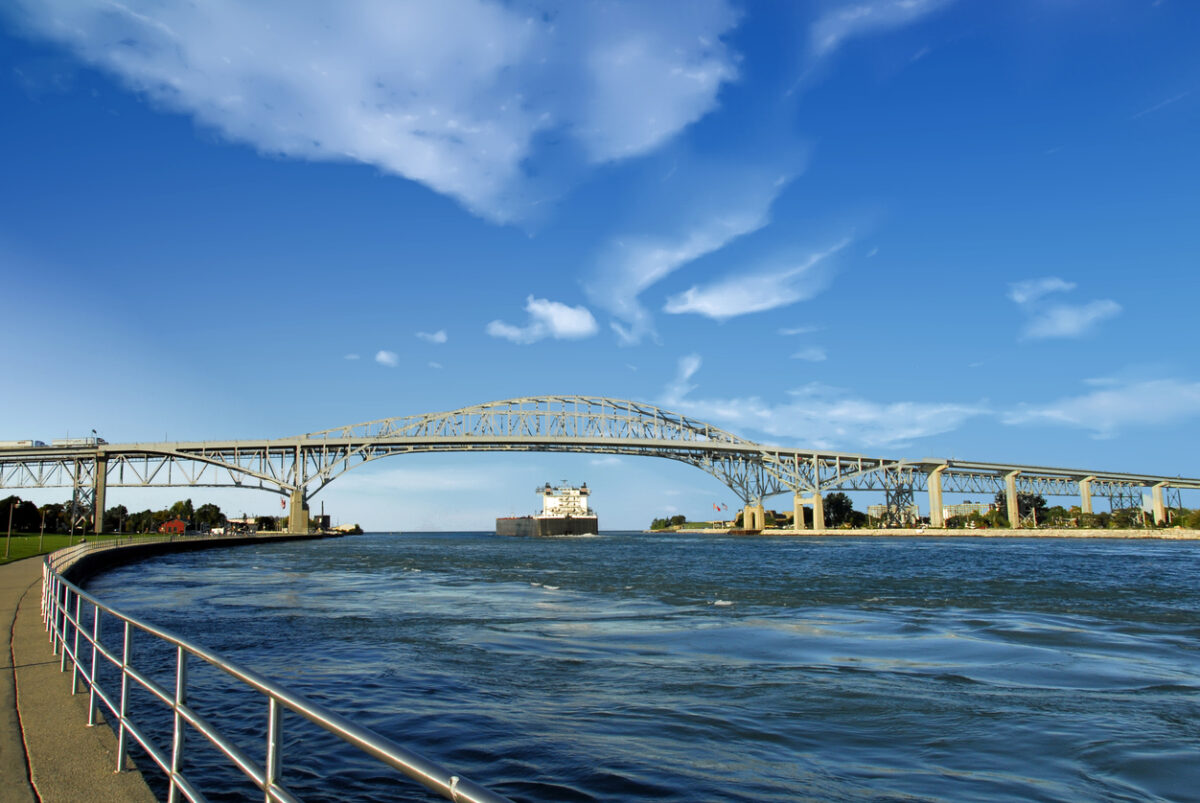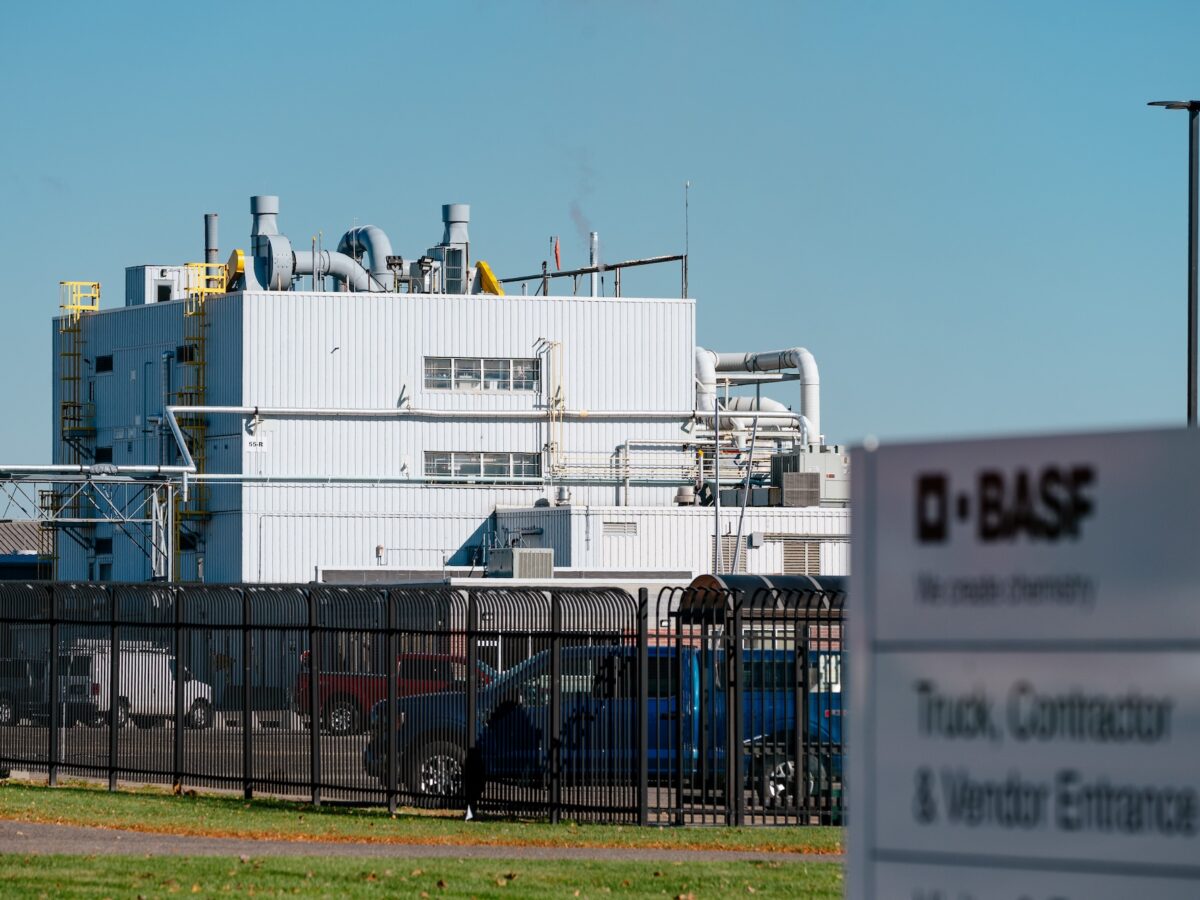Overview:
-Final cleanup efforts following an oil spill in the St. Clair River are expected to wrap by the end of the week.
-There's no evidence of the spill spreading beyond the booms set up by Suncor, says Coast Guard spokesperson.
-Canadian petrochemical and fertilizer industries are concentrated in the Sarnia area.
An oil spill that occurred Thursday on the St. Clair River appears to be under control, according to U.S. and Canadian authorities.
Less than 200 gallons of crude oil spilled into the river from Suncor Energy’s facility south of Sarnia, Ontario, Gary Wheeler, a spokesperson with the Canada Ministry of the Environment, Conservation and Parks, told Planet Detroit.
Suncor set up booms or floating barriers to isolate the spill and is continuing to take samples and share data with local officials, he said.
“Cleanup activities are ongoing at multiple locations along the river, with final cleanup efforts expected to be completed by the end of the week,” Wheeler said.
Suncor did not respond to a request for comment.
MORE REPORTING FROM PLANET DETROIT
Lake Erie defies the trend as Great Lakes water levels take a dive
Great Lakes water levels fall below last year’s figures, with Lake Erie remaining near historical norms. This change follows a dry fall and increased winter evaporation.
Michigan regulators request BASF’s plan to halt Detroit River pollution: Letter
Michigan regulators give BASF 60 days to produce a plan to stop contaminated groundwater from its Wyandotte chemical plant from polluting the Detroit River.
Detroit River cleanup spotlighted in Michigan’s 2024 Great Lakes report
Michigan’s 2024 State of the Great Lakes report underscores efforts to enhance water quality and ecosystem health in the Detroit River. This includes monitoring toxic PFAS chemicals, phosphorus, and bacteria, and implementing strategies to curb phosphorus runoff causing harmful algal blooms in western Lake Erie.
No Michigan impact, Coast Guard says
Following the spill, water in St. Clair Township, Ontario was declared safe to drink, according to an update from the Lambton County health department. The agency advised residents to avoid skin contact with river water.
Helicopter overflights and inspections along the Michigan shoreline haven’t shown any evidence of the oil spill spreading beyond the booms set up by Suncor, according to Kyle Rivera, a lieutenant with the Coast Guard’s Sector Detroit.
“After evaluating, we have not seen, thankfully, any impacts in Michigan,” he said.
Although impacts from the spill appear to have been limited, the incident is a reminder of the risks associated with the Canadian petrochemical and fertilizer industries concentrated in the Sarnia area.
Suncor previously spilled petrochemicals into the St. Clair River in 2022 and the area has seen incidents like a 2019 train derailment in the tunnel connecting Port Huron with Sarnia that spilled roughly 12,000 gallons of sulfuric acid.
The frequency of oil spills on the St. Clair River has declined since the 1980s and progress has been made at addressing environmental issues like beach closings and bird or animal deformities and reproductive problems, according to the Canada Water Agency.
Sheri Faust, executive director and founder of the nonprofit Friends of the St. Clair River, said reducing spills has been critical because cities like Port Huron, Marysville, and St. Clair source their drinking water from the river.
“We recognize that there’s always going to be risks to surface water in the river,” she said, citing industry, transportation, and municipal sewer discharges as potential sources of pollution.
Since water moves so quickly through the river, it’s imperative to respond rapidly to protect water intakes before pollution reaches them, she said.
The recent spill showed that U.S. and Canadian authorities are working together to monitor for pollution, respond to pollution threats, and notify stakeholders of an issue, Faust said.
“All of those elements worked together (with) this event, which is reassuring,” she said.





